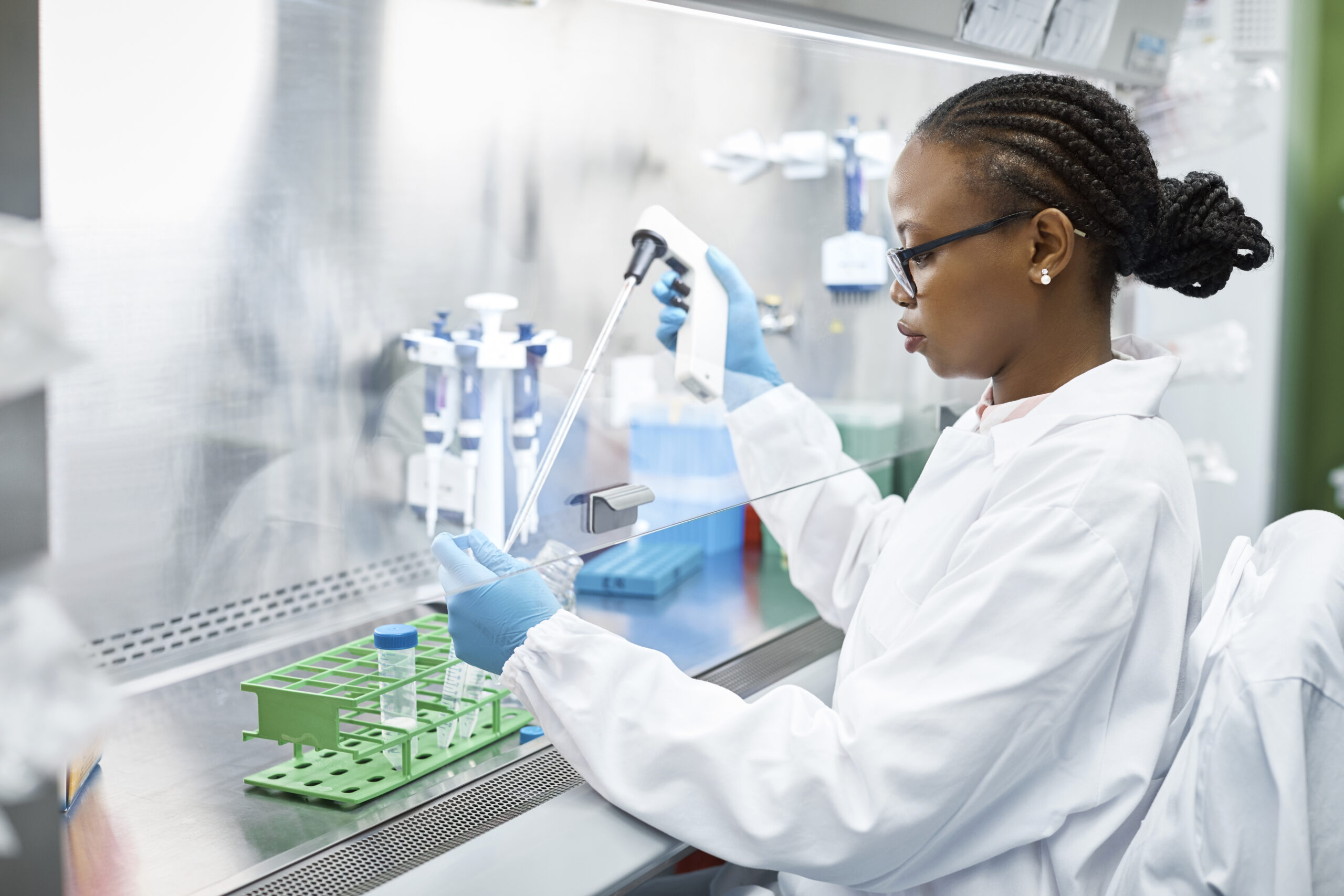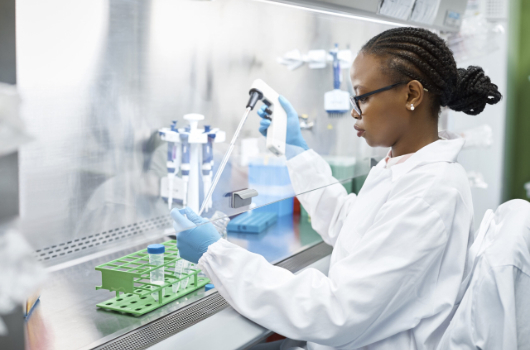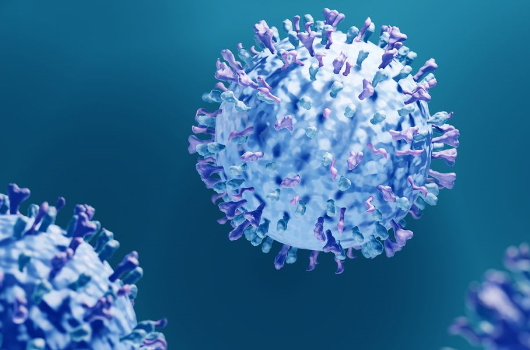Clinical Study
Understanding Antimicrobial Resistance

HealthTrackRx • May 6, 2024
What is Antimicrobial Resistance and why does it occur?
Antimicrobial resistance (AMR) occurs when microorganisms such as bacteria, viruses, fungi, and parasites evolve and develop resistance to the drugs used to treat infections. This resistance can render standard antibiotics, antivirals, and antifungal medications ineffective, making infections harder to treat and increasing the risk of complications.
AMR typically arises due to the overuse or misuse of antimicrobial drugs in humans, animals, and agriculture. When these medications are used improperly or unnecessarily, they exert selective pressure on microorganisms, favoring the survival and proliferation of resistant strains. Additionally, the spread of resistant genes between bacteria through horizontal gene transfer can further exacerbate AMR.
Why is Antimicrobial Resistance a problem?
Antimicrobial resistance poses a significant threat to global public health, leading to increased morbidity, mortality, and healthcare costs. Infections caused by resistant microorganisms are more challenging to treat and may require more prolonged hospital stays, more expensive medications, and alternative treatment options that may have more side effects.
Furthermore, the rise of AMR can undermine the effectiveness of essential medical procedures, such as surgeries, chemotherapy, and organ transplants, which rely on effective antimicrobial treatments to prevent and treat infections. If left unchecked, AMR could potentially lead to a future where common infections become untreatable, jeopardizing advancements in modern medicine and public health.
Does PCR Testing combat Antimicrobial Resistance?
PCR (Polymerase Chain Reaction) testing plays a crucial role in combating antimicrobial resistance by providing rapid and accurate diagnostic results. Unlike traditional culture-based methods, which can take days to yield results, PCR testing can quickly identify specific pathogens and antibiotic resistance genes, allowing for targeted and appropriate antibiotic therapy.
PCR testing enables healthcare providers to prescribe the most effective antimicrobial treatments based on the detected pathogens and their resistance patterns, thereby reducing the unnecessary use of broad-spectrum antibiotics, and minimizing the risk of further resistance development. It also allows for rapid identification of pathogens that don’t require antibiotic treatment, reducing the overuse of these medications.
Moreover, PCR testing facilitates surveillance efforts to monitor the spread of antimicrobial-resistant strains and guide public health interventions to contain outbreaks and prevent transmission. By aiding in early detection and appropriate management of infections, PCR testing contributes to the preservation of antimicrobial effectiveness and the mitigation of antimicrobial resistance globally.
Conclusion
In summary, antimicrobial resistance is a pressing public health concern fueled by the overuse and misuse of antimicrobial drugs. PCR testing plays a critical role in addressing this challenge by providing timely and accurate diagnostic information to guide targeted antimicrobial therapy, prevent the spread of resistant strains, and preserve the effectiveness of antimicrobial agents for future generations.
Related Articles and White papers

HealthTrackRx • May 6, 2024
What is Antimicrobial Resistance and why does it occur?
Antimicrobial resistance (AMR) occurs when microorganisms such as bacteria, viruses, fungi, and parasites evolve and develop resistance to the drugs used to treat infections. This resistance can render standard antibiotics, antivirals, and antifungal medications ineffective, making infections harder to treat and increasing the risk of complications.
AMR typically arises due to the overuse or misuse of antimicrobial drugs in humans, animals, and agriculture. When these medications are used improperly or unnecessarily, they exert selective pressure on microorganisms, favoring the survival and proliferation of resistant strains. Additionally, the spread of resistant genes between bacteria through horizontal gene transfer can further exacerbate AMR.
Why is Antimicrobial Resistance a problem?
Antimicrobial resistance poses a significant threat to global public health, leading to increased morbidity, mortality, and healthcare costs. Infections caused by resistant microorganisms are more challenging to treat and may require more prolonged hospital stays, more expensive medications, and alternative treatment options that may have more side effects.
Furthermore, the rise of AMR can undermine the effectiveness of essential medical procedures, such as surgeries, chemotherapy, and organ transplants, which rely on effective antimicrobial treatments to prevent and treat infections. If left unchecked, AMR could potentially lead to a future where common infections become untreatable, jeopardizing advancements in modern medicine and public health.
Does PCR Testing combat Antimicrobial Resistance?
PCR (Polymerase Chain Reaction) testing plays a crucial role in combating antimicrobial resistance by providing rapid and accurate diagnostic results. Unlike traditional culture-based methods, which can take days to yield results, PCR testing can quickly identify specific pathogens and antibiotic resistance genes, allowing for targeted and appropriate antibiotic therapy.
PCR testing enables healthcare providers to prescribe the most effective antimicrobial treatments based on the detected pathogens and their resistance patterns, thereby reducing the unnecessary use of broad-spectrum antibiotics, and minimizing the risk of further resistance development. It also allows for rapid identification of pathogens that don’t require antibiotic treatment, reducing the overuse of these medications.
Moreover, PCR testing facilitates surveillance efforts to monitor the spread of antimicrobial-resistant strains and guide public health interventions to contain outbreaks and prevent transmission. By aiding in early detection and appropriate management of infections, PCR testing contributes to the preservation of antimicrobial effectiveness and the mitigation of antimicrobial resistance globally.
Conclusion
In summary, antimicrobial resistance is a pressing public health concern fueled by the overuse and misuse of antimicrobial drugs. PCR testing plays a critical role in addressing this challenge by providing timely and accurate diagnostic information to guide targeted antimicrobial therapy, prevent the spread of resistant strains, and preserve the effectiveness of antimicrobial agents for future generations.





